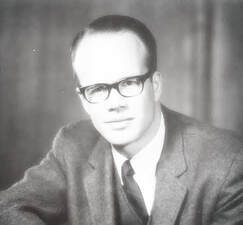Luke 2
 Rick Phillips
Rick Phillips
What makes this more interesting is that the chapter begins by saying that the LORD incited David to do this, apparently by giving Satan permission to tempt him. The parallel account in 1 Chronicles 21 says, “Satan rose up against Israel and incited David to take a census of Israel.” The record in Chronicles places this right after a great victory over the Philistines, so the sin was probably related to a problem with pride and self-reliance. A census was preliminary to a draft of soldiers and a levying of taxes. It seems, therefore, that David’s intent was to increase the royal power in a way that contrasted with humble reliance on God. As Deuteronomy chapter 17 so strongly insists, the human kingship of Israel was to be noticeably dependent on God’s divine kingship. For Israel’s king to build up the same kind of power common to pagan kings was tantamount to repudiating God’s over-kingship. This seems to have been the nature of David’s sin so that God was angered and acted to nip it in the bud.
This sin is repeated today when churches rely on marketing and salesmanship to gain success. There is nothing wrong with prudent surveys about how the church may better serve its people, or how practical matters may be improved. But when the church takes surveys of felt needs and desires so as to identify consumers and convert them into customers—paying customers, of course—by redesigning its worship and message, then, like David in his census, the church repudiates its reliance on God, places its own prowess in the place of his provision, denies the gospel by implication, and angers God so that he judges it and allows it to spiritually wither. This is, in my view, the very thing the church in America is suffering from today.
--Rick Phillips; Tenth Presbyterian Church: Why was David’s Census a Great Sin? 7/28/02
This sin is repeated today when churches rely on marketing and salesmanship to gain success. There is nothing wrong with prudent surveys about how the church may better serve its people, or how practical matters may be improved. But when the church takes surveys of felt needs and desires so as to identify consumers and convert them into customers—paying customers, of course—by redesigning its worship and message, then, like David in his census, the church repudiates its reliance on God, places its own prowess in the place of his provision, denies the gospel by implication, and angers God so that he judges it and allows it to spiritually wither. This is, in my view, the very thing the church in America is suffering from today.
--Rick Phillips; Tenth Presbyterian Church: Why was David’s Census a Great Sin? 7/28/02
|
Luke 2:7:
And she brought forth her firstborn Son, and wrapped Him in swaddling cloths, and laid Him in a manger, because there was no room for them in the inn. |
|
 Joel Green Files
Joel Green Files
“The narrator apparently pictures Joseph and Mary arriving in Bethlehem and staying there for some time before the delivery of Mary’s baby (cf. 2:6, ‘while they were there’), not their inability to locate lodging on the night of their arrival resulting in the birth of the child in a stable.”
“The term Luke employs here for ‘guest room’ is often translated in English as ‘inn.’ However, the same term appears in 22:11 with the meaning ‘guest room,’ and the verbal form occurs in 9:12 and 19:7 with the sense of ‘find lodging’ or ‘be a guest.’
Moreover, in 10:34, where a commercial inn is clearly demanded by the text, Luke draws on different vocabulary. It is doubtful whether a commercial inn actually existed in Bethlehem, which stood on no major roads. It may be that Luke has in mind a ‘kahn or caravansary where large groups of travelers found shelter under one roof,’ but this does not help our understanding of Mary’s placing the child in a manger.”
“That ‘guest room’ is the more plausible meaning here is urged by the realization that in peasant homes in the ancient Near East family and animals slept in one enclosed space, with the animals located on a lower level. Mary and Joseph, then, would have been the guests of family or friends, but their home would have been so overcrowded that the baby was placed in a feeding trough” (p. 128-9).
-Joel Green, The Gospel of Luke (Grand Rapids: Eerdmans, 1997).
“The term Luke employs here for ‘guest room’ is often translated in English as ‘inn.’ However, the same term appears in 22:11 with the meaning ‘guest room,’ and the verbal form occurs in 9:12 and 19:7 with the sense of ‘find lodging’ or ‘be a guest.’
Moreover, in 10:34, where a commercial inn is clearly demanded by the text, Luke draws on different vocabulary. It is doubtful whether a commercial inn actually existed in Bethlehem, which stood on no major roads. It may be that Luke has in mind a ‘kahn or caravansary where large groups of travelers found shelter under one roof,’ but this does not help our understanding of Mary’s placing the child in a manger.”
“That ‘guest room’ is the more plausible meaning here is urged by the realization that in peasant homes in the ancient Near East family and animals slept in one enclosed space, with the animals located on a lower level. Mary and Joseph, then, would have been the guests of family or friends, but their home would have been so overcrowded that the baby was placed in a feeding trough” (p. 128-9).
-Joel Green, The Gospel of Luke (Grand Rapids: Eerdmans, 1997).
 James Boice Files
James Boice Files
"Mary met Jesus as her son at the manger, but she did not meet Him as her Savior until she met Him at the cross. Mary needed to lose Jesus as a son in order to find Him as a Savior. Mary needed to take her place with the other disciples, standing as a sinner at the foot of the cross. She needed Jesus to die for her own sins.”
― James Montgomery Boice, 14 Words from Jesus; 2013
 Randy Alcorn
Randy Alcorn
The angel’s message to the shepherds at Jesus’ birth condenses the gospel to its core. He said, “I bring you good news of great joy that will be for all the people” (Luke 2:10). The gospel isn’t for some; it’s for all. The Greek adjective translated “great” here is megas—this isn’t just news, but good news of “mega-joy.” It’s the best news there has ever been or ever will be.
--Randy Alcorn; Eternal Perspectives; Jesus: Good News Of Great Happiness 12/1/23
|
Luke 2:14:
Glory to God in the highest heaven, and on earth peace to those on whom his favor rests. |

Jesus is the Messiah-King who came to offer peace between messed up humans and God. In Jesus, God would make a covenant with his people, making right all wrongs and healing all that is been broken. At Christmas the Angels sang: “Glory to God in the highest heaven, and on earth peace to those on whom his favor rests.” (Luke 2:14).
Jesus restored to wholeness the broken relationship between humans and their Creator, when he suffered death and rose again. He commissioned Christians to be his ambassadors of reconciliation and peace, in their families, communities, and in the world; by participating in his life, death and resurrection (2 Corinthians 5:20, Philippians 3:10). Jesus prayed that his Church may be one, in order to proclaim the message of shalom (John 17:21).,The Church is, however, so divided that it cannot claim to walk the talk of that message. In Ephesians 4:1-6, St. Paul urges Christians to “endeavour to keep the unity of the Spirit in the bond of peace”. This is the purpose of the ecumenical movement. -The Monitor |
|
Luke 2:17:
When they had seen him, they spread the word concerning what had been told them about this child, |
Once they saw, they understood. The sound of the mockingbird is beautiful at 2PM. It is raucus noise at 2AM. Yet the song is the same. At two in the morning I don't want to hear it. I want to sleep. I wonder how many other things I see, hear, and dont understand, yet want to sleep instead.
|
|
Luke 2:44-45:
Then He said to them, “These are the words which I spoke to you while I was still with you, that all things must be fulfilled which were written in the Law of Moses and the Prophets and the Psalms concerning Me.” 45 And He opened their understanding, that they might comprehend the Scriptures. |

After His crucifixion and resurrection, Jesus walked along the Emmaus Road with a couple of disheartened and discouraged disciples who did not recognize Him. Luke 24:27 describes their conversation, “Then beginning with Moses and with all the prophets, He explained to them the things concerning Himself in all the Scriptures.” (NASU) Very soon afterward, Jesus suddenly appeared to other disciples and said, "These are My words which I spoke to you while I was still with you, that all things which are written about Me in the Law of Moses and the Prophets and the Psalms must be fulfilled." Then He opened their minds to understand the Scriptures.” (Luke 24:44-45 NASU) Scripture is living and active. We can read and understand in a superficial way but real understanding requires the illumination of the Holy Spirit. With the aid of the Holy Spirit, our reading of the Old Testament makes it possible for us to recognize the Babe in the Manger. - Steve Ellison
|
This is how many lose Jesus today. They suppose He is in their company, but do not see to it that He is with them personally. Through carelessness it takes but a day to lose Him; but when once lost it sometimes takes days of sorrowful searching, as did Joseph and Mary, to find Him again.










